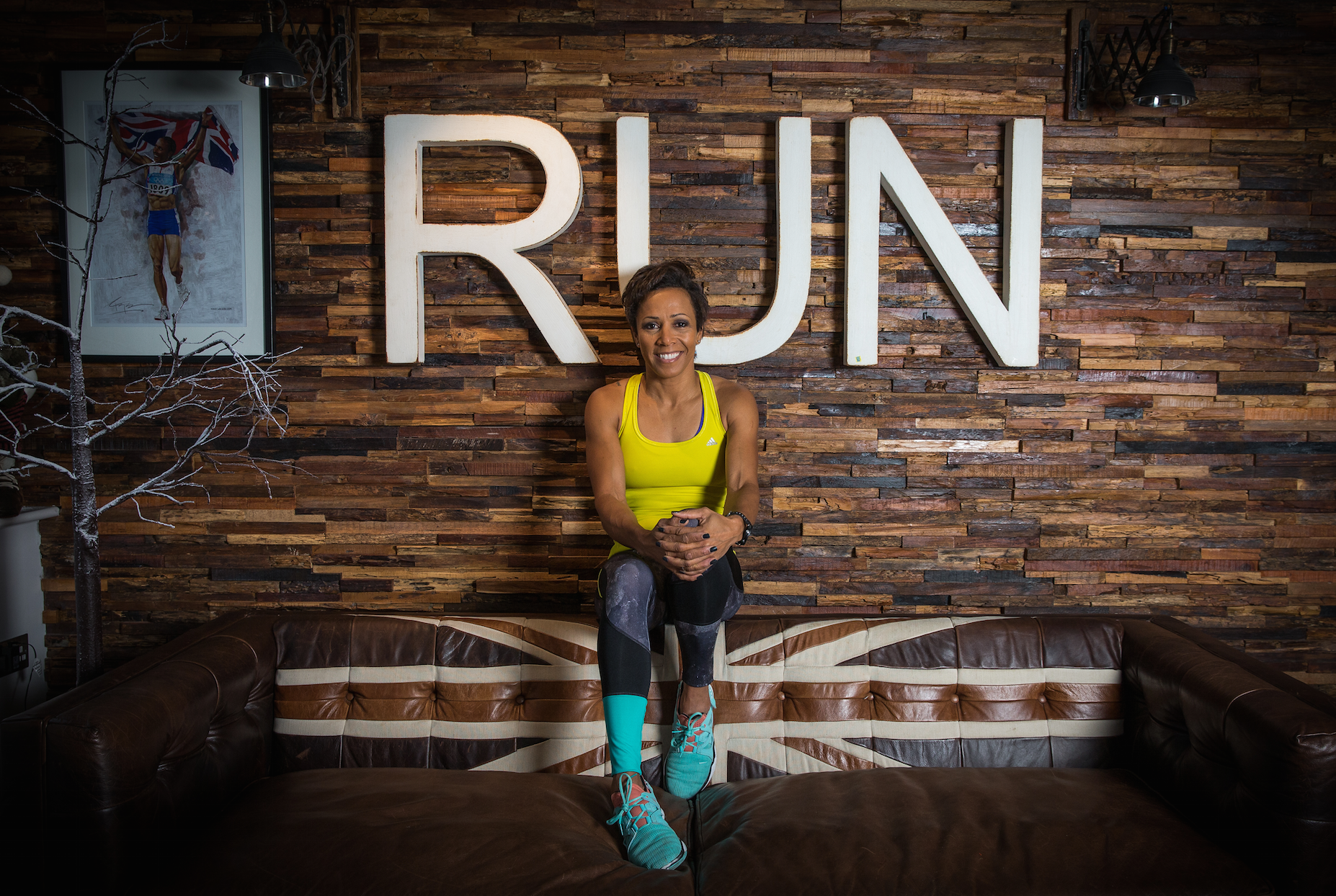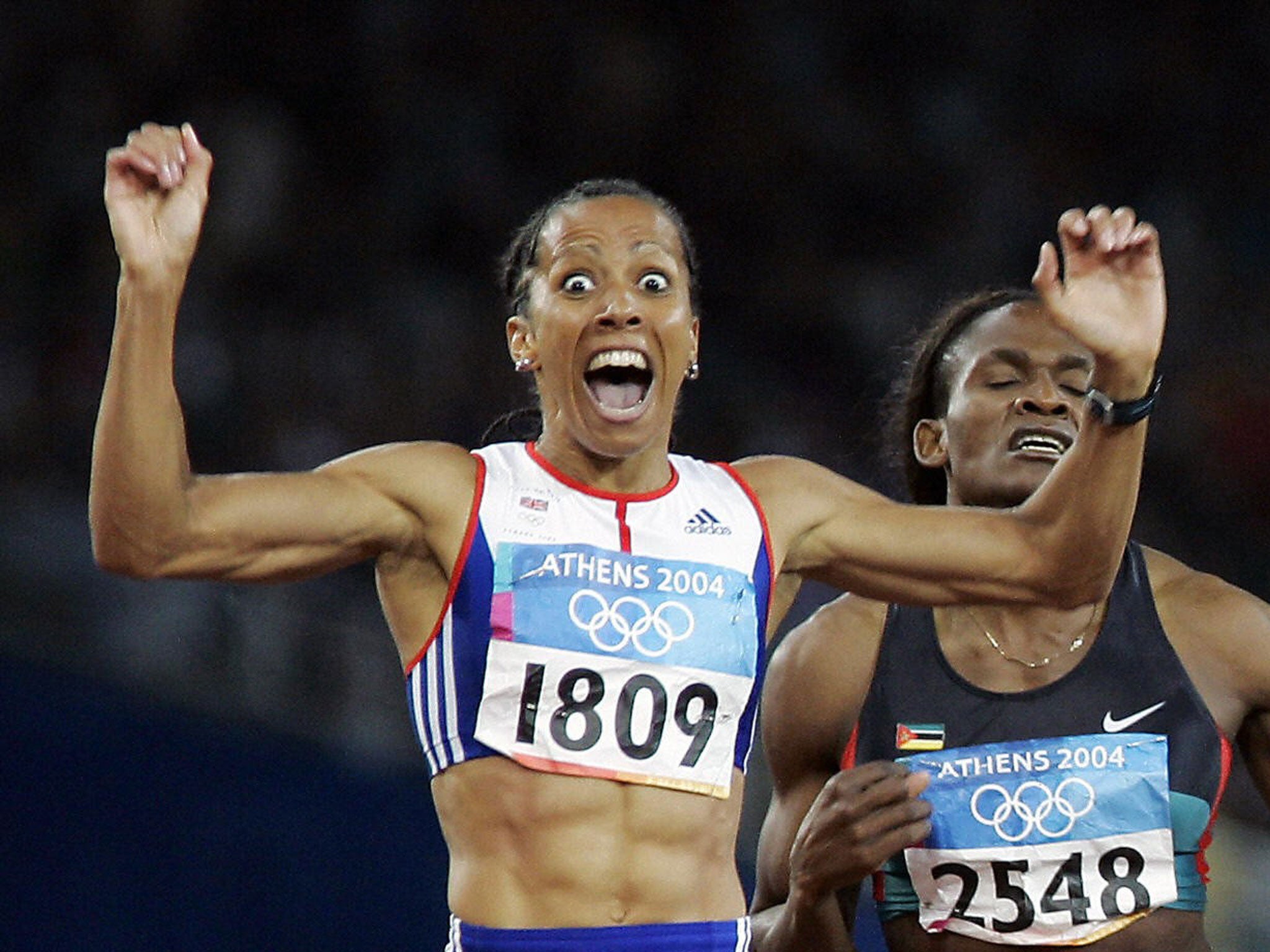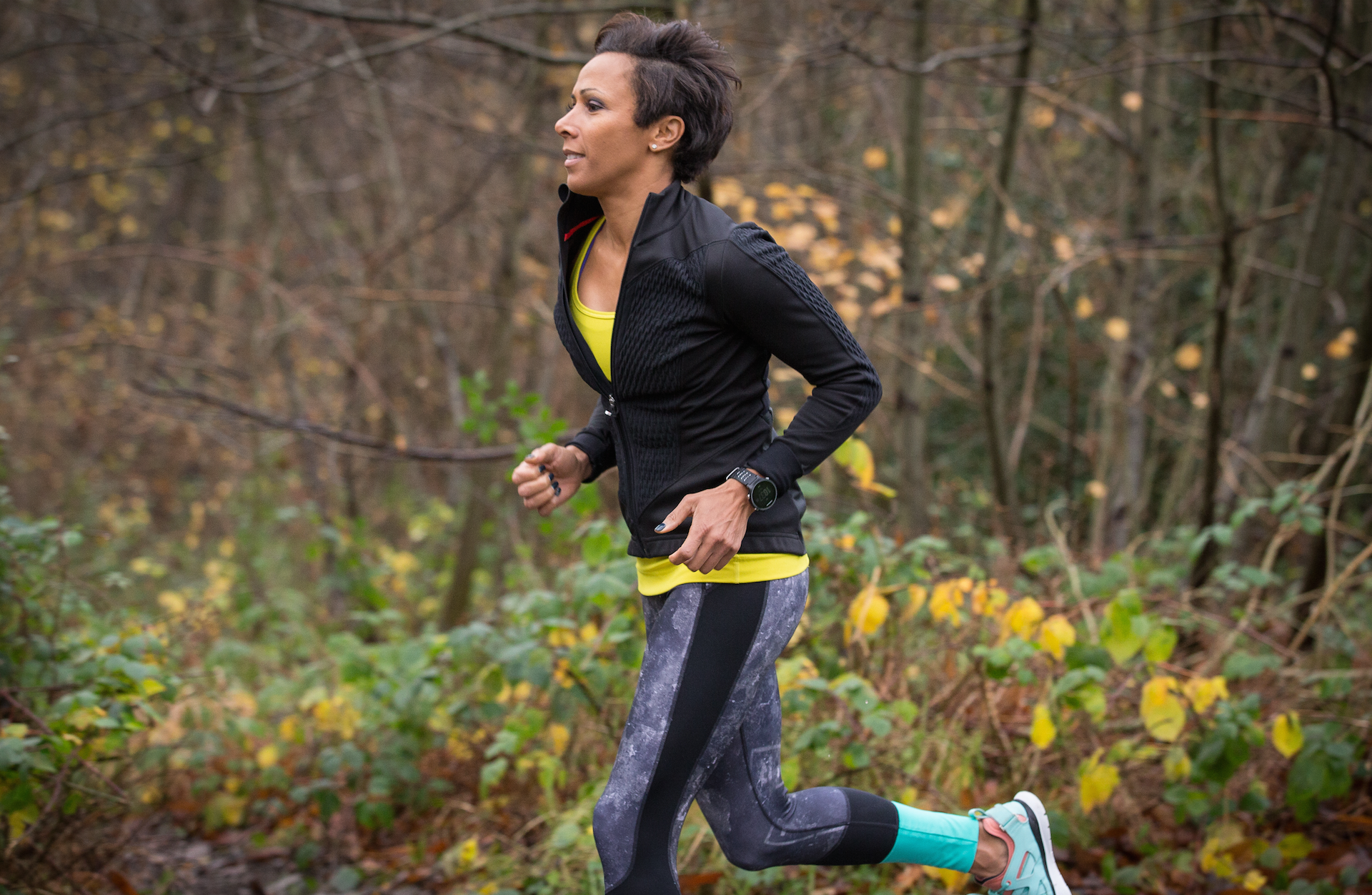Kelly Holmes: 'I'd love to get back to competing, probably 10k'
EXCLUSIVE: The double Olympic champion on her desire to get back to the track, her cafe, Britain's chances in Rio and drugs cheats

Eleven years ago Dame Kelly Holmes went down in British sporting history as the first British woman to win double gold medals at the same Olympic games.
Injuries, always a blight during her brilliant track career, forced the middle distance runner to retire just 18 months after that memorable summer where she won 1,500m and 800m gold in Athens.
It won’t be too much of a surprise to learn that Holmes, now 45, still exercises five times a week (although that could be anything from “20 minutes to an hour and a half”), but it may be more of a shock that she intends to start competing again.
“I’d definitely love to get back to competing, probably running 10k, I think that would suit me,” Holmes tells The Independent from her cafe, Cafe 1809, in Hildenborough, Kent.

“I don’t really know, watch this space,” the charming Holmes says, laughing, when asked about what kind of level she sees herself running at, “but certainly I would want to go into a race feeling like I’ve done enough training to get the best out of myself on that given day and whatever that is…
“I’ve got over the stage of getting totally distraught if I’m not right at the front of the crowd but equally I’d be disappointed in myself if I didn’t do enough training to get the maximum out of my body.”
Watch out Jo Pavey. Holmes, a former BBC Sports Personality of the Year winner who tipped Lewis Hamilton, Jessica Ennis-Hill or Mo Farah for the award this year, adds that she doesn’t really miss the lifestyle of an elite athlete.
“More the fact of having a schedule for fitness. I miss the thing of not having real targets anymore, so that challenge. I’m not necessarily missing the elite side of it, just the fact that I would love to have something that I could set a target for and then the training would become more exciting.”
Holmes, an ambassador for leading GPS sports watch brand, Garmin, also says that the kind of technology that is currently around today would have helped in her career.
“It would’ve been a massive plus for me and my coach. I think people underestimated, now they know, how much of a benefit sports science can be and how monitoring the individual helps. I was always really prone to injury but never really knew the line between being really, really fit and then being injured was as we didn’t have those tools. When I was getting injured a lot and then getting back to fitness I never really knew if that injured leg, or whatever, if I was strengthening it up enough to be able to run effectively.
“I’m still getting calf and Achilles problems but I know that if I’ve gone for a run and then come back and you have a sore hip you can look at the data and a guide to recovery - we didn’t have anything like that when I was younger.”

Away from athletics, Holmes has been running her café for just over a year and also has her own charity, the Dame Kelly Holmes Trust that pairs elite athletes with young people around the UK to get them back into education, employment or training.
“We had our first anniversary at the start of the month,” she says about the Cafe. “I used to work in the building when it was a sweetshop when I was a paper round girl and then behind the till when I was about 16 for a year. I’d been trying to buy the building for about 15 years during my career and then finally got it about three and a half years ago, and the aim was to bring people together. Whether that was mums with babies, as we have about five primary schools close by, the older people to get them out and socialising and active. To get them walking here, meeting other people, to try and combat social isolation.
“Then everything in between. We get a lot of cycling clubs come down here, there are a huge amount of cycle racks, space out the back, we’ve become a bit of a hub for all sorts.
“I’ve just launched something called Active Soul, which allows everybody to feel part of a community and feel supported in their goal to have an active life. We’re going to start yoga classes, do some stuff with Garmin, we’re going to be doing cycling groups. We already have walking groups come here, meet here and then go off. We have healthy food options, we want to link up with other gyms and other clubs around here and hope they can be part of it as well.”
Back on the track, the Olympics is once again back on the horizon, almost four years after Great Britain enjoyed arguably their greatest team performance ever when they came third in the medal table on home soil at London 2012.
While Holmes does concede that the home crowd did buoy plenty of special performances in London, the British team has more than enough talent, and funding, to repeat their heroics.
“I think [the health of British athletics] is generally good,” she says. “It’s becoming a much more level playing field and we have a real good depth of young talent coming through. Lynsey Sharp performed really well after the World Championships last year, coming second overall on the all-time British record list - luckily I still hold the record at the moment! She is a massive talent. Hannah England, who has won bronze before in 1500m, she didn’t have her best season last year but she’s talented. There’s so many of them to be honest it just really depends on how the season pans out .A championship is a championship, it’s three rounds and you never know.
“I definitely think there was a big element of success from that home games hype. [There was] a different focus and expectations had risen, so I do think that. But we’ve had funding increases in sport generally, so each individual sport is becoming a lot more professional, they have great teams behind them, the sports are becoming full-time across the board and not just in the high profile sports, so generally you are getting a much stronger British team.
“More individuals are qualifying as well, so you the more athletes you have in the team the more chance you have to medal. But its not always just about the medals, it’s about who gets into finals as that’s a big thing for going forward. But I think we can do as well, definitely.”
Athletics has also found itself in the headlines in recent weeks as doping scandals continue to emerge on the back and front pages. Holmes thinks it is actually a good thing, despite the damage that has been done to the sport.
“Finally [drug cheats] are being exposed,” she says, passionately. “I think now it’s a great opportunity for the leaders to making their mark and say ‘enough is enough, we’re not tolerating anything to do with anyone cheating the system’, or corruption or whatever it may be. For me it’s good that things come out, so that everybody can see it, so that no sport or athlete can hide.
“The problem is that it’s only ever a few people, the bad apples that are out there that tarnish everything and everybody and that’s not right.”
Dame Kelly Holmes is an ambassador for the Garmin Forerunner 630
Join our commenting forum
Join thought-provoking conversations, follow other Independent readers and see their replies
Comments
Bookmark popover
Removed from bookmarks